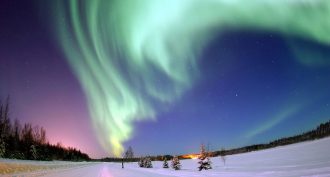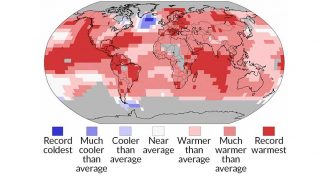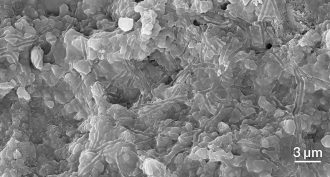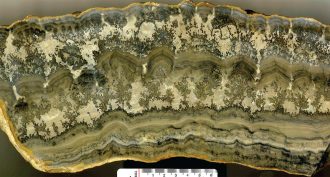Earth
-
 Agriculture
AgricultureA shock to the food system
Droughts and other weather extremes caused by climate change are dramatically increasing the risk of short-term interruptions in the supplies of food.
By Sid Perkins -
 Microbes
MicrobesPowered by poop and pee?
Scientists are developing methods to not only remove human waste from wastewater, but also to harness the energy hidden within it.
-
 Earth
EarthBright night lights, big science
When the northern lights flare, blame the sun. Scientists say auroras “surge” when energy from solar wind builds up on the night side of the Earth.
-
 Physics
PhysicsTracking warfare by ‘Earth shakes’
Geophysicists are discovering how weapons shake, rattle, and roll the Earth. What they’re learning might one day help win wars.
By Beth Geiger -
 Animals
AnimalsUsing dolphins to find unknown ocean pollutants
Long-lasting pollutants may threaten marine mammals and human health. To find those pollutants, scientists are sampling blubber, then running the fatty material through new types of tests.
By Liz Devitt -
 Climate
Climate2015 was really hot
Spurred by global warming and a “super” strong El Niño, 2015 went into the books as the warmest year since record-keeping began — and that was 1880.
-
 Animals
AnimalsWhat a drag! Fishing gear’s effects on whales
Many whales become entangled in the gear that fishing boats use to catch fish and shellfish. Such debris can have dire impacts on the big mammals.
By Ilima Loomis -
 Earth
EarthBubbles may have sheltered Earth’s early life
For Earth’s earliest inhabitants, a bubble on the beach would have been the next best thing to a safety blanket.
By Meghan Rosen -
 Oceans
OceansArctic ice travels fast, carrying pollution
Climate change is melting old sea ice in the Arctic. Now, younger, thinner ice is migrating far and fast, taking pollutants with it.
-
 Earth
EarthMystery ‘earmuffs’ sit deep inside Earth
Two vast blobs in Earth’s lower mantle could result from a “trainwreck” of ancient colliding tectonic plates.
By Beth Geiger -
 Physics
PhysicsNews Brief: Why rainbows can lose some hues
When the sun is right near the horizon, such as at sunset, its light travels through the most atmosphere. When there’s also plenty of water in the air, this can rob colors from a rainbow, scientists now report.
-
 Earth
EarthRocks hold clues to ancient die-offs
Rocks that formed during ancient mass-extinction show that the oceans back then had become very warm. That was the last time Earth spewed carbon dioxide into its atmosphere at a rate similar to what is happening today.